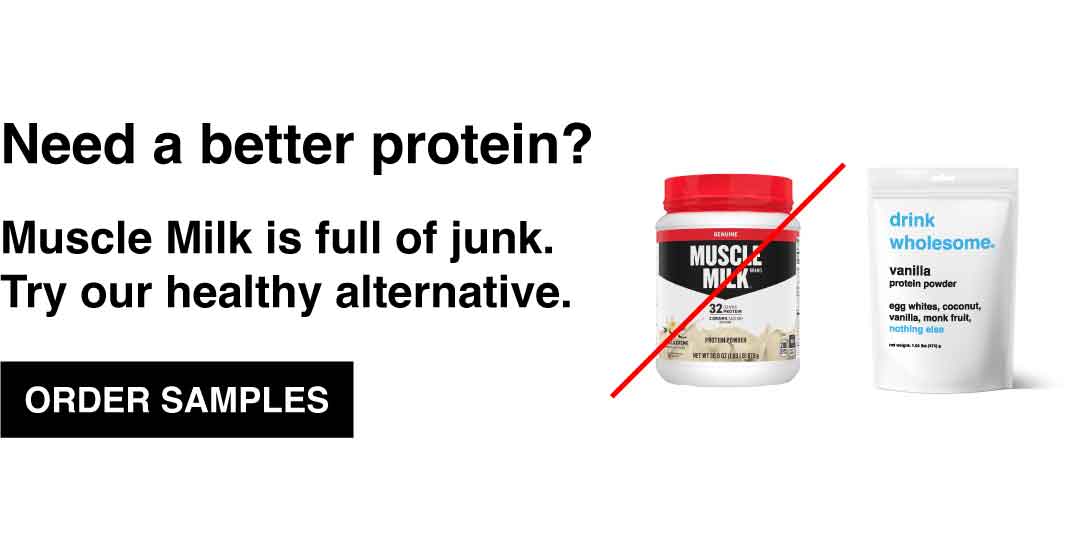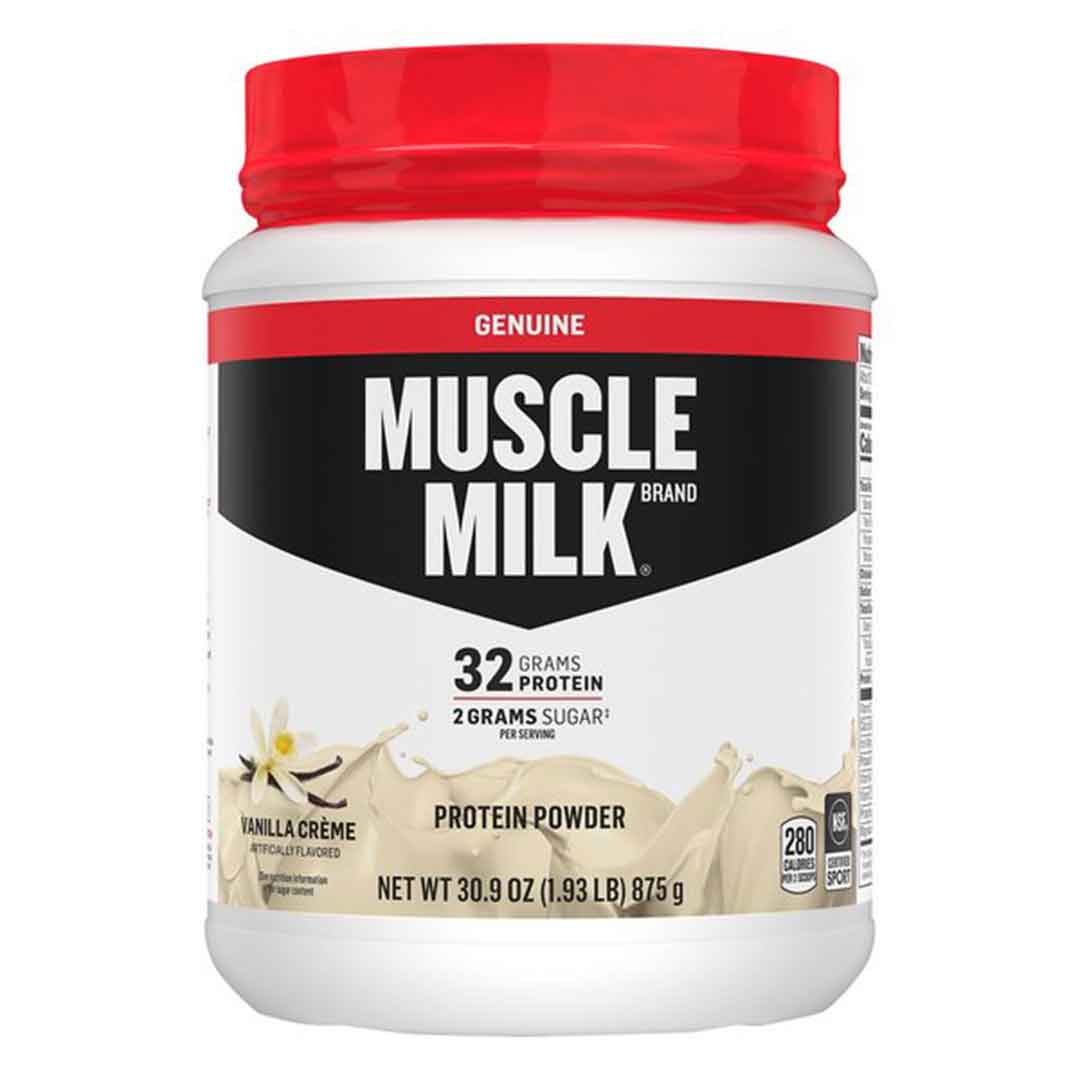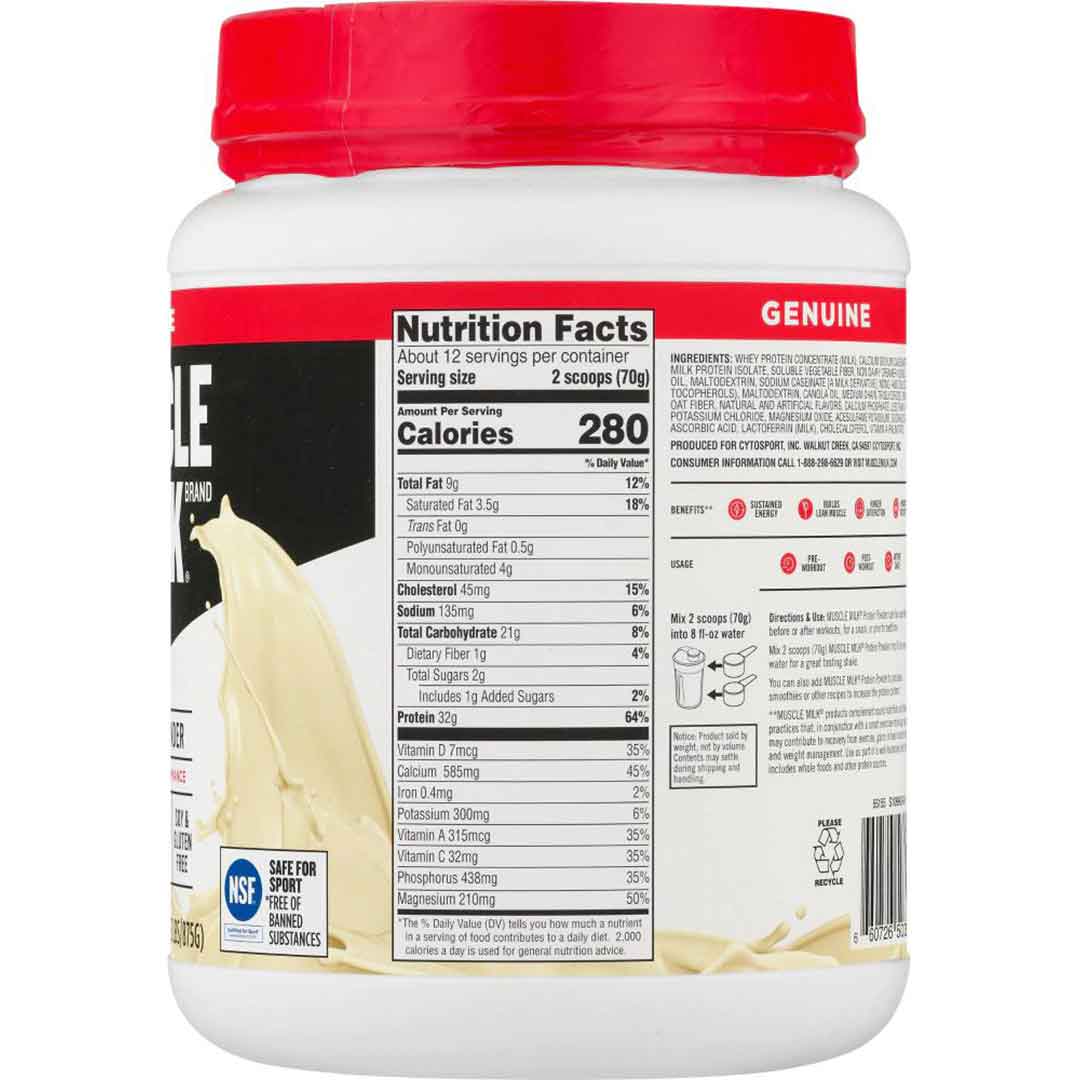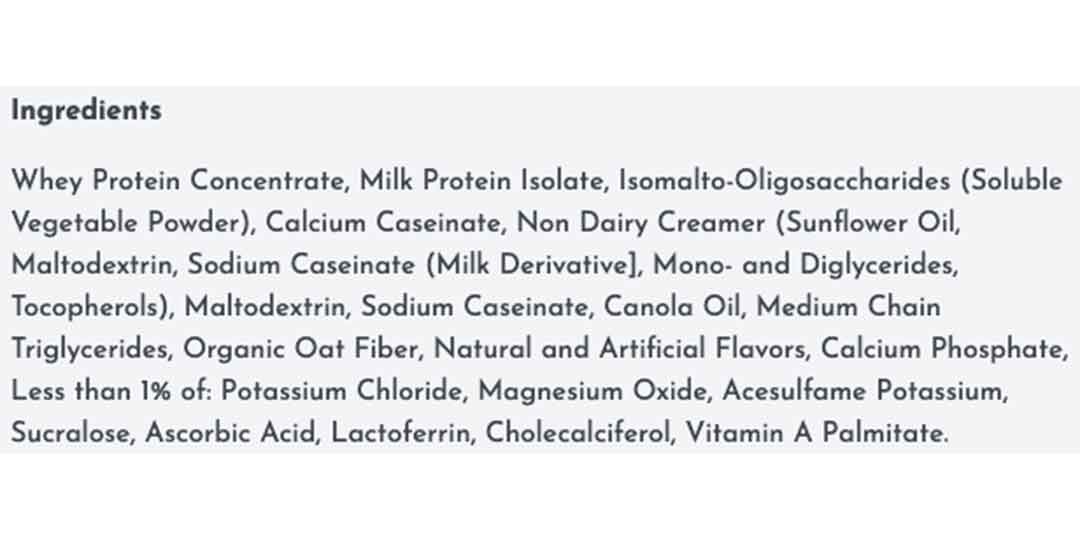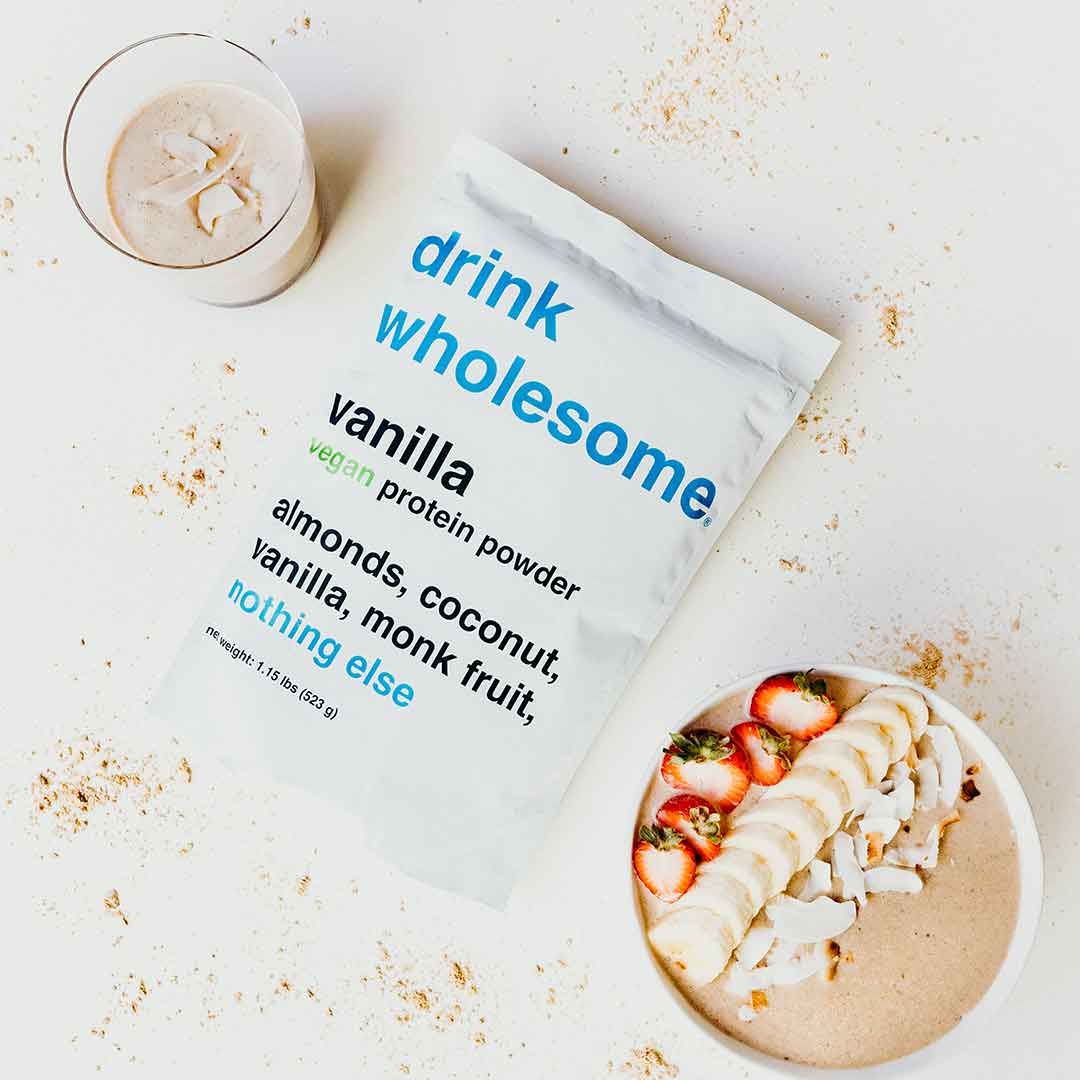Isomalto-Oligosaccharides
The third ingredient in Muscle Milk Vanilla Crème protein powder is Isomalto-Oligosaccharides, or IMO for short. IMO is a high-maltose syrup made up of a mixture of short-chain carbohydrates. It is marketed as a sweet, non-caloric prebiotic fiber that has virtually zero effect on blood sugar. Although IMO occurs naturally in some whole foods, it is not economically feasible to extract it from whole foods on a commercial scale, so almost all IMO syrups are manufactured from corn starch using an enzymatic process. This means that IMO, like protein isolates, looks nothing like real food. For this reason, our bodies do not know what to do with it, and it causes digestive issues. This is especially the case for people with gut issues like irritable bowel syndrome (IBS) and small intestinal bacterial overgrowth (SIBO). If you have a sensitive stomach, or trouble digesting FODMAPs (fermentable oligo-, di-, mono-saccharides and polyols), IMO may cause terrible gas and bloating.
food additives
Muscle Milk Vanilla Crème protein powder contains over half dozen food additives. Although not necessarily bad for you in small quantities, additives can add up quickly (especially if you drink a protein shake every day) and cause gastrointestinal (GI) side effects like bloating, constipation, diarrhea, gas, and stomach pain. This is because food additives are hard to digest and sit in your gut for longer than food should, which gives your gut bacteria more time to eat. As they eat, these bacteria produce gas, which causes bloating and stomach pain. Gas also slows colonic transit (the amount of time it takes food to travel through the colon) and can lead to constipation. In the long term, food additives can disrupt regulatory pathways in the intestine, which can result in the development of inflammatory bowel disease (IBD) and systemic inflammatory disorders.
Here are the food additives in Muscle Milk Vanilla Crème protein powder:
Calcium Caseinate, Maltodextrin, Maltodextrin, Sodium Caseinate, Canola Oil, Natural and Artificial Flavors, Calcium Phosphate, Potassium Chloride, Magnesium Oxide
artificial sweeteners
All Muscle Milk products are sweetened with artificial sweeteners, which are among the most harmful additives in the long term as they alter the composition of your gut microbiota (the collection of microorganisms that help you digest food). This can lead to serious, chronic GI problems, widespread inflammation, and permanent damage to the gut microbiome. Some sweeteners are also poorly absorbed by the gut (meaning they feed those hungry gut bacteria), and cause diarrhea because they draw water into your intestine. Now you finally have something to blame for those post-protein shake trips to the bathroom!
Here are the artificial sweeteners in Muscle Milk Vanilla Crème protein powder:
Acesulfame Potassium, Sucralose
When it comes to identifying food additives and artificial sweeteners, go with your gut. 😉 As a rule of thumb, they are the ingredients that you cannot pronounce.
Muscle Milk protein powder taste and texture.
Taste is so subjective that I hesitate to include it in this Muscle Milk protein powder review. A protein powder that one person loves might make another person gag, so if you read product reviews on Amazon, you will find both 5 star reviews and 1 star reviews of the same exact recipe. For the sake of this Muscle Milk protein powder review, however, I will share my thoughts on how Muscle Milk tastes and mixes.
Muscle Milk Vanilla Crème protein powder tastes pretty good, if you can tolerate artificial sweeteners. Because it contains so much fat and carbohydrates, it does not taste chalky like many protein supplements. It also mixes well with both milk and water (no clumps or grit). The only thing I really did not like was the aftertaste. As you just learned, Muscle Milk contains 2 artificial sweeteners (acesulfame potassium and sucralose), which, like most artificial sweeteners, activate bitter taste receptors. This bitterness lingered in my mouth for a few hours after drinking my shake.
Muscle Milk is one of the most heavily-processed, artificial protein powders out there. If you are looking to boost your protein intake at whatever cost, then Muscle Milk is a decent option. It is affordable, widely available, and tastes pretty good. If you care at all about your gut and overall health, however, then I highly recommend finding an alternative. Muscle Milk is notorious for causing side effects, and can most certainly lead to long-term damage to your gut microbiome.
The “gut,” also known as the gastrointestinal (GI) system, is made up of several organs including the stomach, small intestine, large intestine, and colon. The term “gut microbiome” refers to the microorganisms living in your intestines, and the term “gut health” describes the function and balance of these organisms. The gut does much more than just help us to digest food. It also protects against pathogens, educates the immune system, and affects directly or indirectly most of our physiologic functions.
Several recent studies have examined the role of the gut in diagnosis, prognosis, and treatment of a variety of diseases, and have concluded that it plays an integral role in overall health. Given the important role that your gut plays, you should consider the ways in which the foods you eat affect it. You should also consider the potentially enormous impact that protein powder can have on your gut microbiome. Protein powder is not just any food, it is a food that you probably consume regularly, if not daily.


